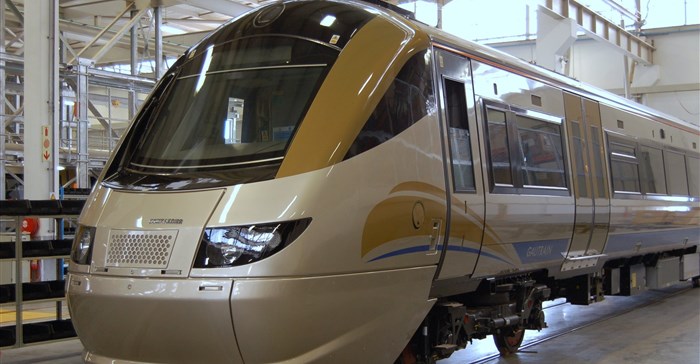The Gautrain's costly subsidy could be cut after confirmation this week that the concessionaire of the high-speed train is procuring 12 new four-car train sets (48 coaches) to meet rising passenger demand.
Gauteng forked out R1.1bn to the Bombela Concession Company last year, while in 2014 and 2013 the provincial transport department paid the Gautrain operator R1.035bn and R800m, respectively. This has been described as a private-public partnership in which the government absorbs the pain while the private sector enjoys the spoils.
Bombela has put out a R3.2bn tender for the coaches and a new depot where they will be parked and serviced, which is expected to be in Midrand close to an existing one.
More seats
The Gautrain carries 1.4-million commuters a month and has, to date, transported 50-million passengers. The new rolling stock will carry 4,500 passengers more a day in 2019 and will do 10,500 trips in 2026.
Gautrain Management Agency chief operating officer William Dachs said it had reached 2020 passenger levels because of rising commuter numbers during peak hours. "This will have a positive impact on the patronage guarantee, but the actual amounts will depend on the fares charged and travel patterns," said Dachs.
Who is responsible for what?
The agency falls under the provincial transport department and is responsible for managing and overseeing the Gautrain. The provincial transport department provides the subsidy based on passenger numbers, fares paid, departure points and destinations, and distances travelled. Also taken into account are the number of ancillary services, such as buses and station parking, and the time passengers take to move from private to public transport.
The government paid a R25.2bn grant for the development of the Gautrain, representing 90%-95% of its total cost.
The agency and Bombela are locked in arbitration to resolve disputes about who is responsible for what. The main dispute dates back to the construction of the Gautrain, during which, claims Bombela, it suffered losses because the provincial government delayed handing over land. The province denies this. An arbitration tribunal is handling the dispute.
"Where possible the disputes are resolved amicably. Where this has not been possible, the disputes are resolved by hearings before tribunals of the Arbitration Foundation of Southern Africa," said Dachs. The final scheduled hearing for the disputes is March 2018.
Buying an efficient city
Transport economist Andrew Marsay said few public transport projects made a profit and it was not unusual for operators to be paid patronage guarantees.
In Hong Kong, public transport was profitable because of the number of people living there and the frequency of trains. However, in England and France public transport was heavily subsided by the state. "When you start a public-private partnership as big as the Gautrain, it is important to ask what it is you are buying. And what you are buying is an efficient city," said Marsay.
Concessionaires in these projects were doing a "difficult and good" job, which they could not do without being paid properly.
He highlighted the fact that the Gautrain had not only changed the way people travelled but also how the areas around its stations were being developed. "You have to take your eyes off the narrow vision of a little business and focus on how the Gautrain is changing the way the city is functioning," said Marsay.
Source: Business Day






































